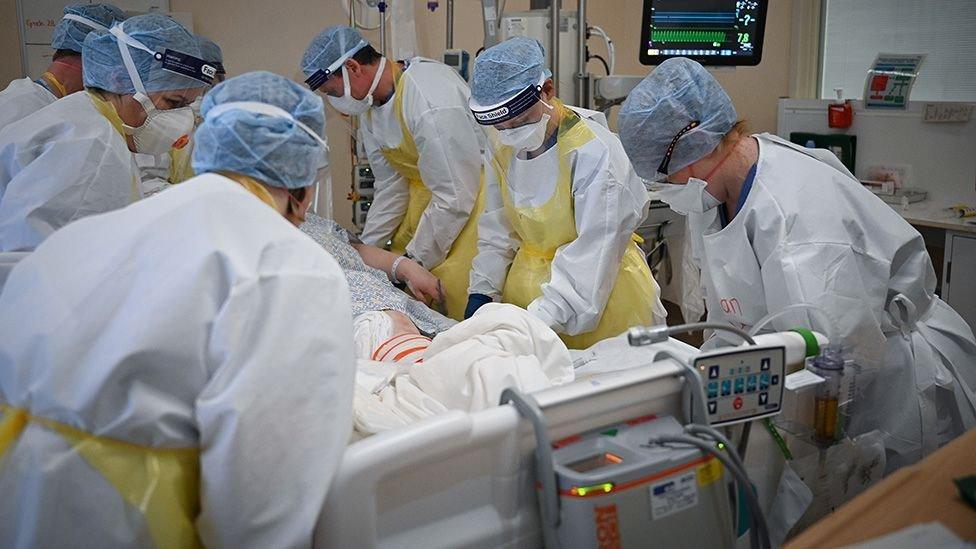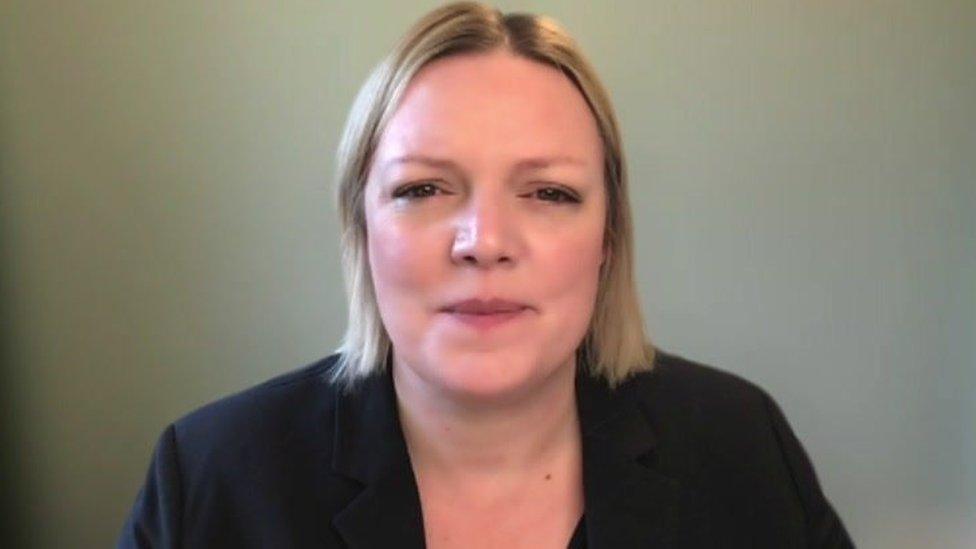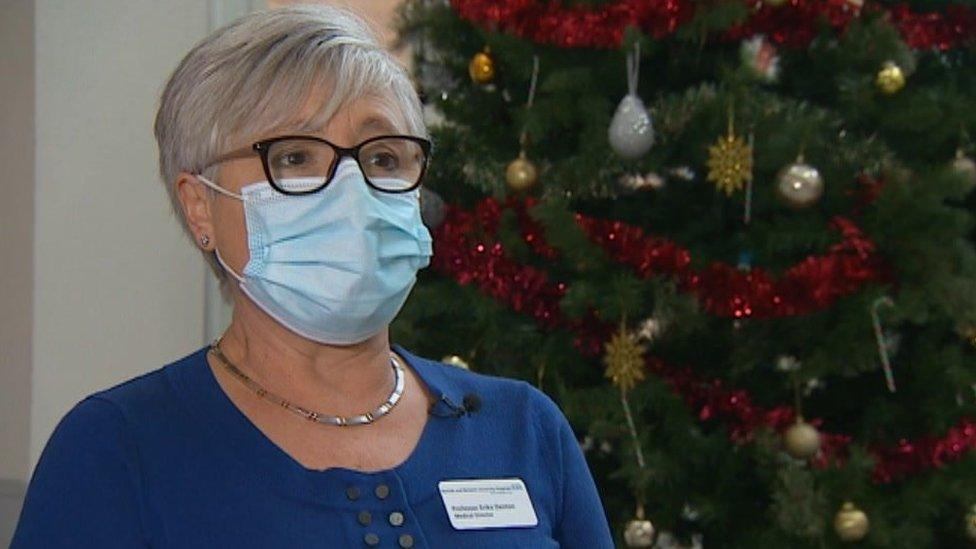Covid: Professor concerned by pressure on critical care beds
- Published

About 3,500 patients were occupying intensive care beds across England this week, and some 900 of those were people with Covid-19
A intensive care specialist said she was "extremely concerned" about the levels of demand for critical care beds due to pressures of Covid-19.
Prof Charlotte Summers from Cambridge University said the Omicron variant was likely to make the situation worse in terms of treating non-Covid patients.
Of about 3,500 patients in intensive care units (ICUs) in England, about 900 were people with Covid.
The government said it had set aside £8bn to deal with non-Covid cases.
Prof Summers, who works in intensive care in Cambridge, said "difficult decisions are already being made. Intensive care beds are a finite resource".
"About one-in-five to one-in-four ICU beds are currently occupied by patients with Covid, meaning they're not available for delivering the work that we used them for before the pandemic." said Prof Summers.
"Every day intensive care units and hospitals are making decisions about the kind of activity they can manage to support, particularly around elective surgical cases."

Prof Charlotte Summers said any discussion over whether to ration care for unvaccinated people would be "very dangerous"
Prof Summers said the extra capacity being created to treat Covid patients was coming out of existing resources.
"We've just stretched what we had," she said.
But she rejected any idea that patients who may have decided not to get a vaccination should be treated differently.
"The patients that are being seen in intensive care units are predominantly people who have not being vaccinated," she said.
"There is a huge discussion that's getting more and more prominent around how we should potentially ration health care for people who are not vaccinated. I think that that's really dangerous".

Prof Erika Denton from the Norfolk and Norwich Hospital said they were worried about the impact the new variant might have on patient numbers
The Norfolk and Norwich Hospital University Hospital is a designated "surge centre" which takes in patients from around the region, but it had been less busy than it had been with Covid-19 cases.
Its medical director Prof Erica Denton said: "With the new variant, especially among patients not vaccinated, we're likely to see increasing numbers of people requiring our assistance particularly for ventilation and critical care.
"We really don't know yet how the new variant is going to behave. But the evidence suggests that if you're not vaccinated you're much more likely to be sick.
"Please protect yourself and your families by getting vaccinated now."
'Tough situation'
Adam Brimelow of NHS Providers says England compared "unfavourably" with similar sized economies in western Europe when it came to the number of intensive care beds per head of population.
"Our starting point in terms of capacity is not great," he said.
"We have continuing significant numbers of Covid patients. We've got pressures coming through to intensive care from urgent and emergency care where we're really seeing unprecedented demand.
"The treatment care backlog requires intensive care resource. So all those pressures are coming together to make for a very tough situation."
The government has said Omicron was likely to be "more transmissible" though it was "too early to draw conclusions".
A Department of Health and Social Care spokesman said the government's settlement for the NHS would see funding increased by £3.9bn by 2023-24, which included £8bn set aside to tackle the backlog of treatments needed for non-Covid patients.

Find BBC News: East of England on Facebook, external, Instagram, external and Twitter, external. If you have a story suggestion email eastofenglandnews@bbc.co.uk, external